Welsh Water upgrade at Weobley treatment plant nearly complete
- Published
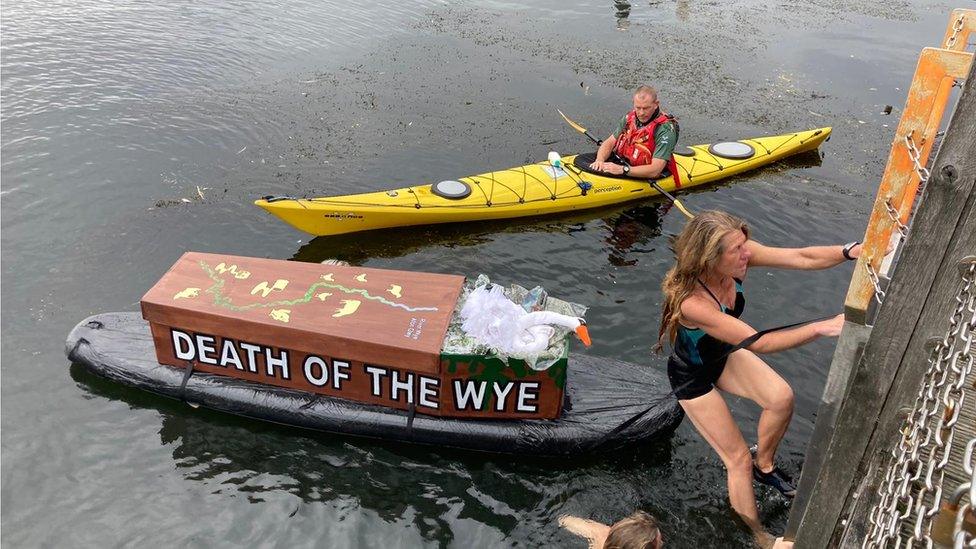
Angela Jones, known as the "Wild Woman of the Wye", campaigns against pollution of the river
Work to upgrade a wastewater treatment plant as part of moves to clean up the River Wye is nearing completion.
Welsh Water says its £3.5m upgrade of the plant in Weobley, Herefordshire, will be completed early in 2023.
It said the plant already treated wastewater it received to a "high standard" but the main improvement was removing phosphates.
Campaigners say the River Wye has excessive algae growth - often caused by high phosphate levels in the water.
This growth makes it difficult for wildlife to thrive, they said, and they have raised concerns about levels of pollution, thought to be impacted by methods of farming and sewage disposal.
In the summer, a sculpture of the Virgin Mary was taken on a river journey to help raise awareness about the problem.
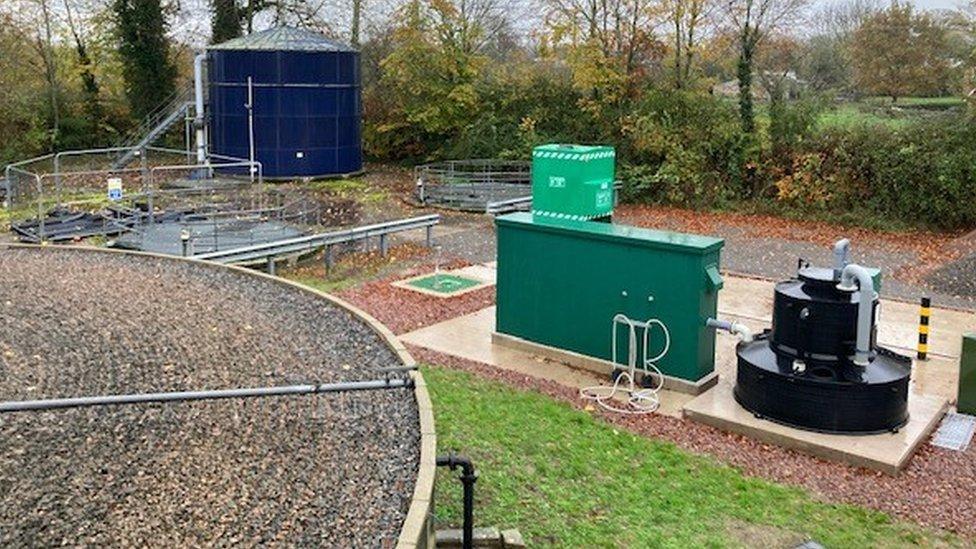
The technology at Weobley reduces the level of phosphate in the water
The legal requirement of phosphates before the water is discharged into streams and rivers is 1.5mg.
Using iron to treat the water will mean about 0.4mg is being discharged, the firm said.
Data from Natural Resources Wales and Welsh Water for the River Wye shows 72% of the phosphate comes from land use and 23% from wastewater.
The river flows through mid and south Wales, Herefordshire and Gloucestershire.
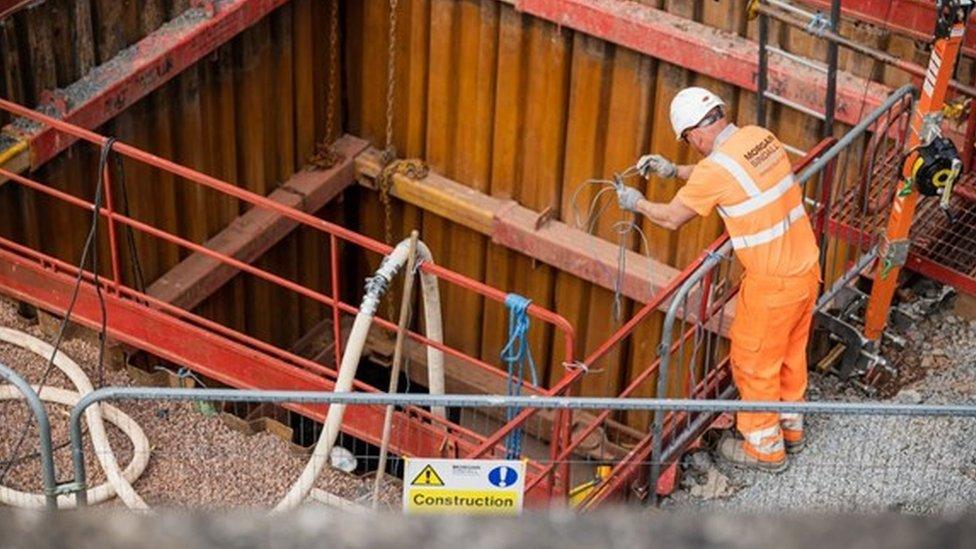
Work is set to be completed early in 2023
"Phosphates can cause algal bloom. So by removing them from the treated wastewater, this will help reduce levels in the nearby Newbridge Brook - which in turn will benefit the river quality and its aquatic life," a Welsh Water spokesperson said.
Jenny Grubb, river quality liaison manager, added its chief executive Peter Perry had pledged to invest an extra £100m improving water quality in England and Wales in the summer.
"And £60m of that will be for phosphate removal," she said.
She told the BBC the firm was aware of the strength of feeling over phosphates.
"It is certainly of interest to our customers and we have taken note of that absolutely and just felt that further investment couldn't wait until our next investment cycle which would start in 2025."
Welsh Water has installed similar technology at other treatment plants and will soon start work at other Herefordshire sites, including in Leominster and Rotherwas.

Follow BBC West Midlands on Facebook, external, Twitter, external and Instagram, external. Send your story ideas to: newsonline.westmidlands@bbc.co.uk

WHAT'S KILLING OUR RIVERS?: Wyre Davies investigates what and who is to blame
BAFTA CYMRU WINNERS: Celebrate the best television from Wales

- Published24 October 2022
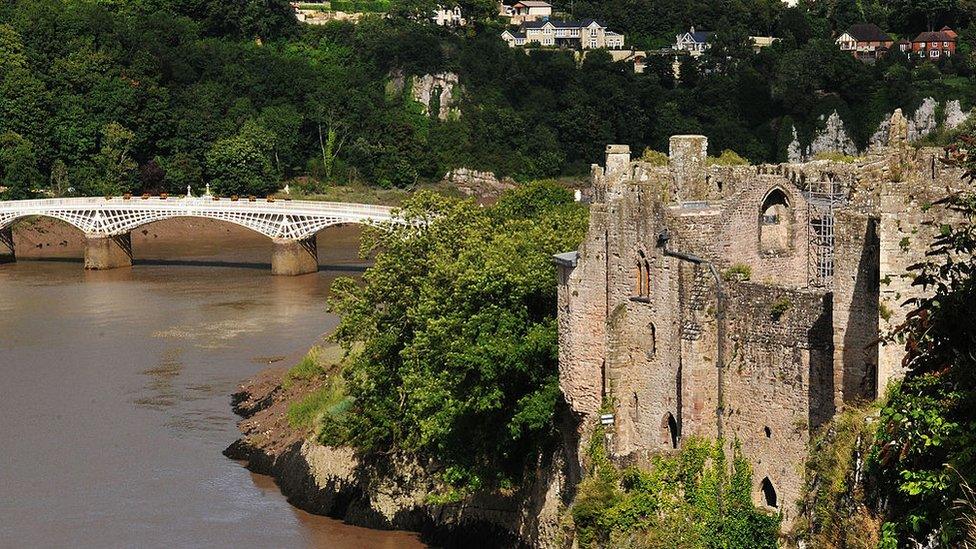
- Published15 August 2022

- Published10 August 2022
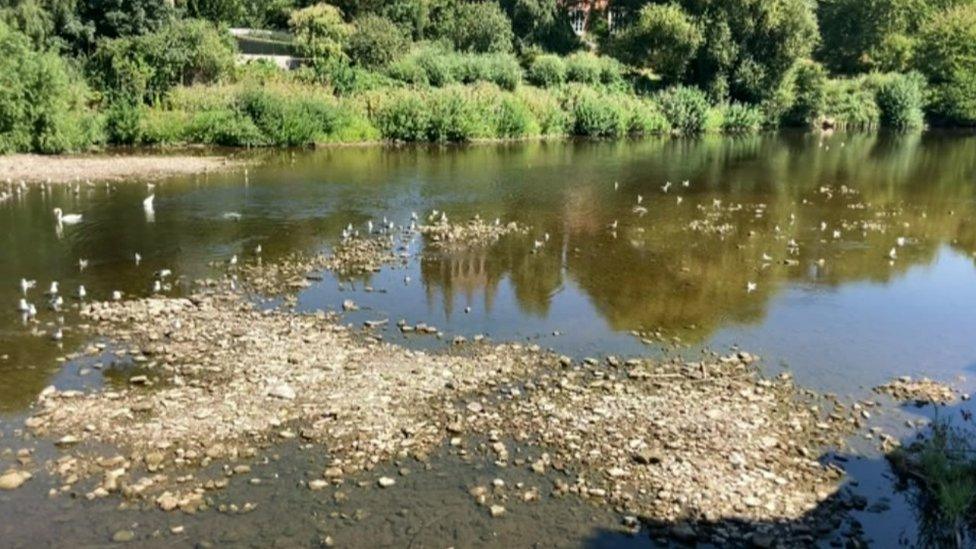
- Published8 February 2022
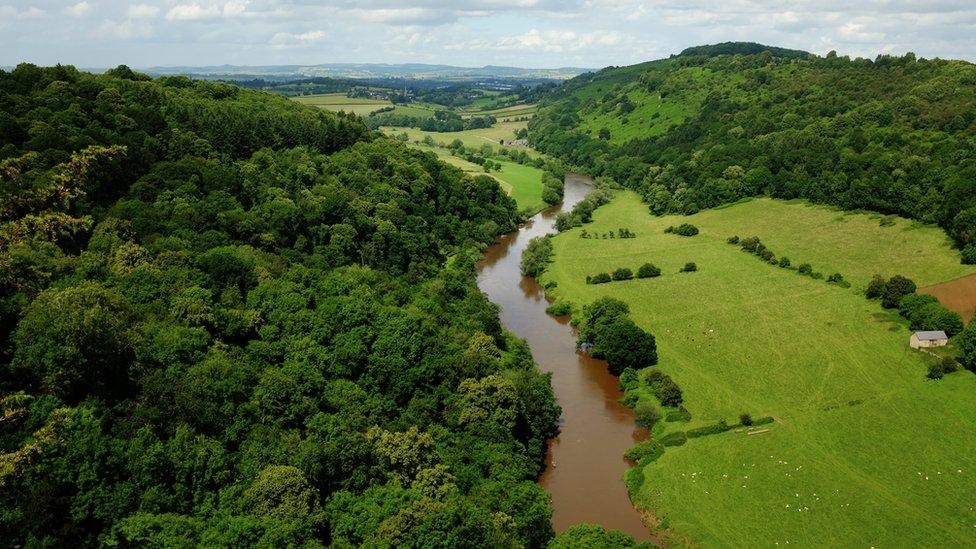
- Published20 March 2022
